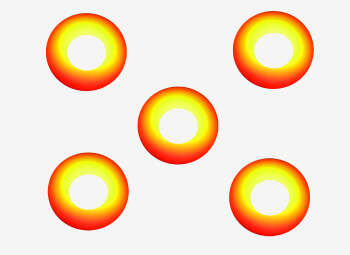We’ve heard it before, and this week, we heard it again, that the sun’s ultraviolet rays (UVA and UVB) are no friend to skin—UVBs are also a primary cause of sunburn. We know the sun causes skin cancer and now a new study out of Australia, published in the Annals of Internal Medicine, confirms how the sun ages our skin.
- A group of patients age 55 or younger was asked to apply a “Broad Spectrum” sun-protection factor (SPF) 15+ sunscreen to head, neck, arms, and hands each morning and after bathing, and after spending more than a few hours in the sun.
- Another group was asked to use sunscreen at its discretion.
- Investigators looked the back of some of the participants’ hands at the beginning and end of the study—4.5 years later.
- Those in the daily-use group were less likely—by 24 percent—to have increased skin aging after that period than those in the discretionary-use group.
Obviously, the control group was younger than our boomer demo, but it’s never too late to prevent more wrinkles and sun damage, no matter your age. Knowing how the sun ages our skin, it’s a matter of vanity for many of us who’d rather slow visible signs of aging.
Sunscreen ABCs
Under regulations that took effect in 2012, sunscreen products that protect against all types of sun-induced skin damage are labeled with that “Broad Spectrum” designation and “SPF 15” or higher. Plus, labels may say that if the product is used as directed with other sun protection measures, the sunscreen can reduce the risk of skin cancer and early skin aging. Anything that’s less than SPF 15 and not labeled as Broad Spectrum may only help prevent sunburn.
Water resistance claims on the product’s front label must tell how much time we can expect to get the declared SPF level of protection while swimming or sweating, based on standard testing.
Manufacturers can’t promise that sunscreens are “waterproof” or “sweatproof” or identify their products as “sunblocks.” Also, sunscreens can’t claim to deliver “instant protection” or protection for more than two hours without reapplication.
Not just sunscreen
Here’s a refresher on sun protection basics:
- Limit time in the sun, especially between the hours of 10 a.m. and 2 p.m., when the sun’s rays are most intense.
- Wear clothing to cover skin exposed to the sun; for example, long-sleeved shirts, pants, sunglasses, and broad-brimmed hats.
- Reapply sunscreen at least every two hours, more often if you’re sweating or jumping in and out of the water.
Everything you need to know
Our friends at Environmental Working Group wrote the book on sunscreens. Here’s their comprehensive section on these products: Don’t miss it! EWG reminds us not to pack these sunscreen products when we travel:
- No Spray Sunscreens
- No Super-High SPFs
- No Oxybenzone
- No Loose Powder Sunscreens
- No Retinyl Palmitate
- No Combined Sunscreen/Bug Repellents
- No Sunscreen Towelettes
- No Tanning Oils
With the latest information on sun, you’re a step ahead of another new wrinkle.
++++++++++++++++++++++++++++++++++++++++++++++++++++++++++++++++++++++++++++++++++++++++++++++++++
(Photo courtesy: © Lyn Baxter | Dreamstime Stock Photos)